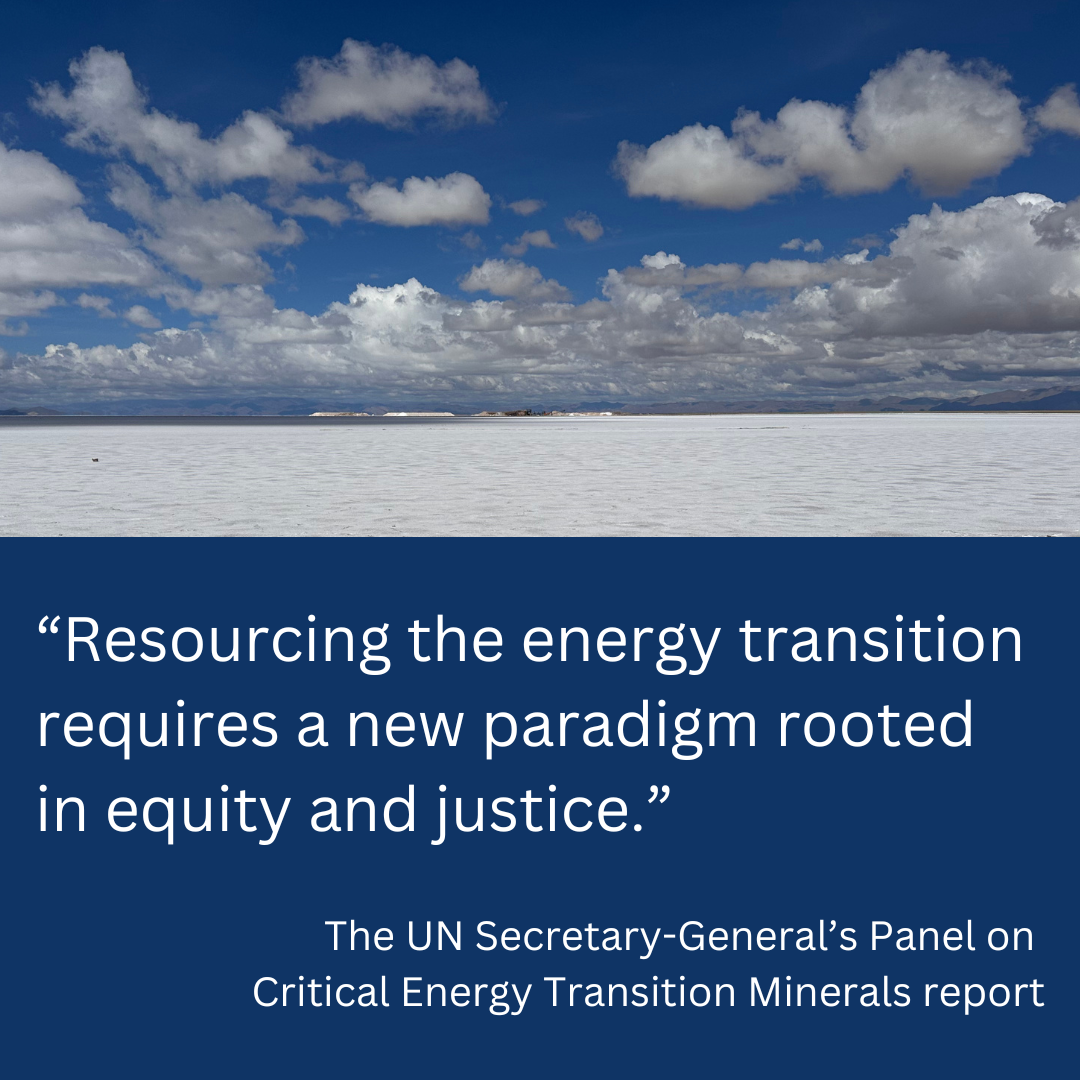
United Nations Secretary-General convened a Panel on Critical Minerals for the Energy Transition to develop principles and recommended actions to place equity and justice at the heart of supply chains.
The Panel, which included three civil society seats occupied by the Natural Resource Governance Institute (NRGI), Climate Action Network (CAN) and the UN Permanent Forum on Indigenous Issues (UNPFII), has just released its report.
Thanks to recommendations from civil society organizations, the report contains robust principles and recommendations that can serve as a launchpad for action in several important areas, though there is still room for improvement. For example, the need to reduce demand in Northern countries is not mentioned; instead, it talks about balancing demand with sustainable provisioning. Nor is there mention of achieving this reduction through a change in the mobility model based on public transport, active mobility, and shared mobility, as indicated in the recommendations. The cancellation of debt in low- and middle-income countries is also not mentioned, nor is the withdrawal of states from agreements on investor-state dispute settlement (ISDS).
However, civil society is calling for global collective action to realize these ambitions:
-
Anchoring human rights and Indigenous Peoples’ rights in mineral supply chains
-
Protecting the planet’s integrity.
-
Unlocking the equitable development potential of developing countries rich in minerals.
Signatories organizations have also welcomed the High-Level Expert Advisory Group, which will be responsible for accelerating greater benefit-sharing, value addition, and economic diversification, as well as fair trade, investment, fiscal policy, finance, and taxation. We call on the United Nations, as host, to ensure that this Group is diverse and inclusive. We urge the Group to investigate unfair trade and investment treaties, promote regional cooperation and integration, and discourage fragmented bilateral trade and investment agreements that entrench unequal power dynamics.
Please consult the full statement.

